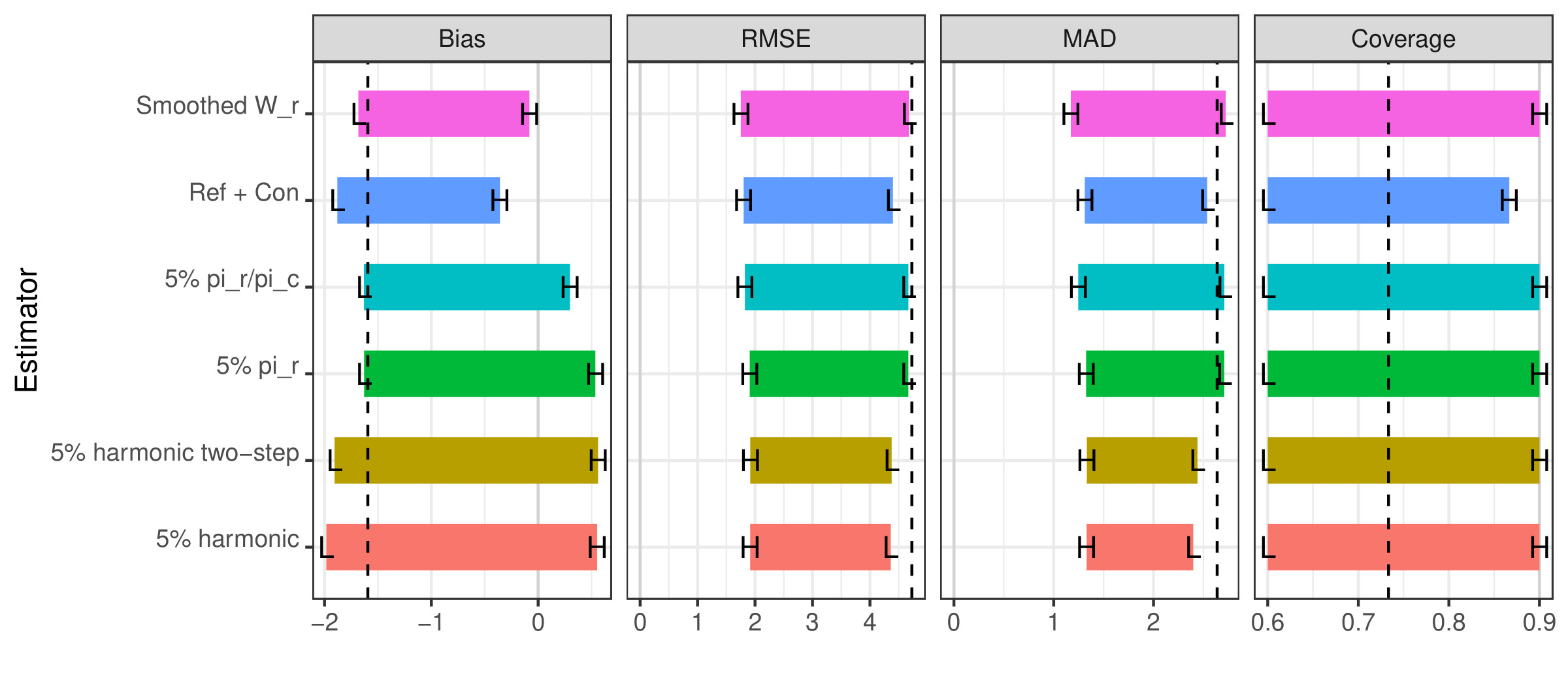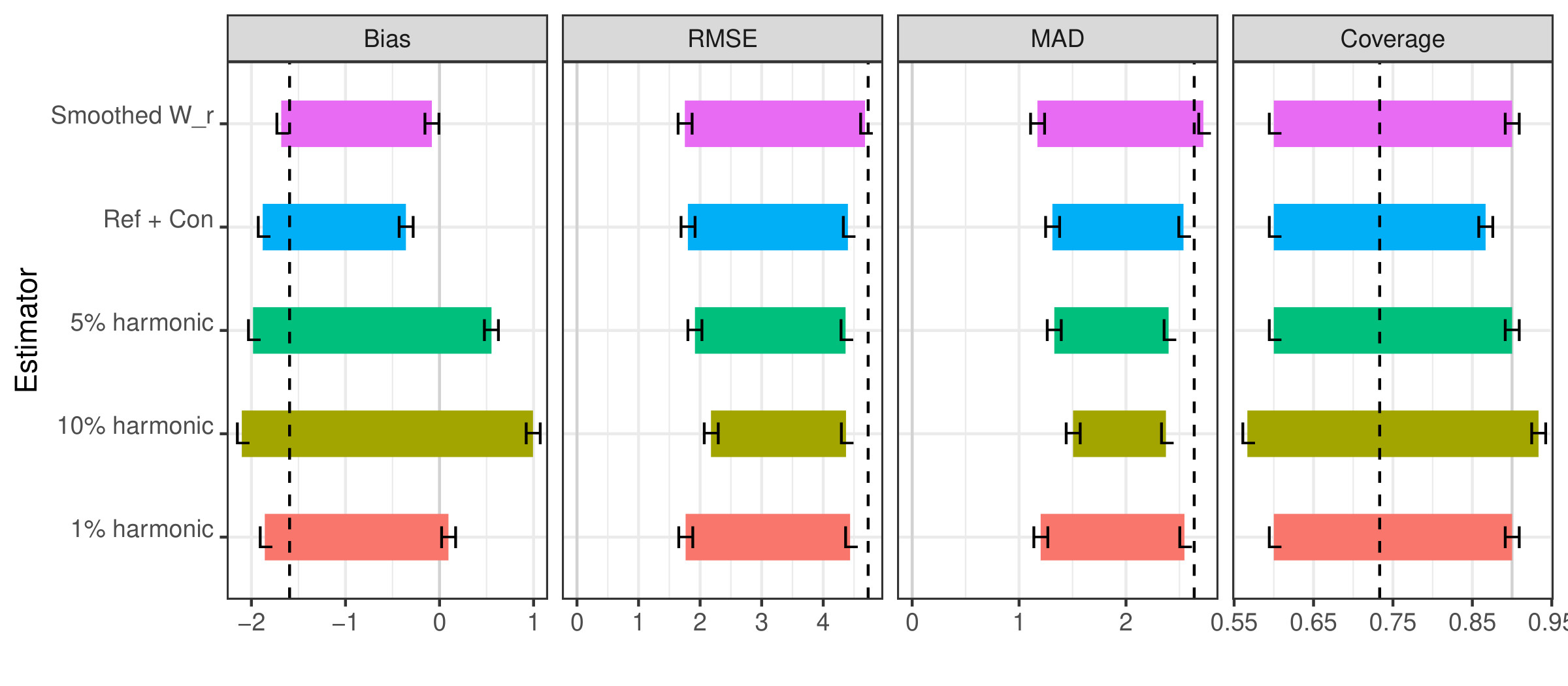Thresholding Nonprobability Units in Combined Data for Efficient Domain Estimation
Conference
65th ISI World Statistics Congress
Format: CPS Abstract - WSC 2025
Keywords: "bayesian, "survey
Session: CPS 27 - Nonresponse Bias, Nonprobability Sampling, and Estimation Strategies in Survey Methodology
Tuesday 7 October 4 p.m. - 5 p.m. (Europe/Amsterdam)
Abstract
Quasi-randomization approaches estimate latent participation probabilities for units from a nonprobability / convenience sample. Estimation of participation probabilities for convenience units allows their combination with units from the randomized survey sample to form a survey weighted domain estimate. While one leverages convenience units for domain estimation under the expectation that estimation precision and bias will improve relative to solely using the survey sample; however, convenience sample units that are very different in their covariate support from the survey sample units may inflate estimation bias or variance. This paper develops a method to threshold or exclude convenience units to minimize the variance of the resulting survey weighted domain estimator. We compare our thresholding method with other thresholding constructions in a simulation study for two classes of datasets based on degree of overlap between survey and convenience samples on covariate support. We reveal that excluding convenience units when there is a relatively low degree of overlap in the covariate support with the survey sample reduces estimation error.
Figures/Tables
two_arm_variations_updated_May24-1

two_arm_variations_updated_May24-2

